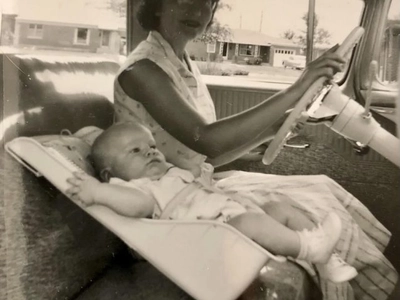My Son Demanded a Car or He'd Leave—Here's Why I Let Him Walk Away
When your adult child throws down an ultimatum that sounds like it came straight from a toddler's playbook, you're facing one of parenthood's most challenging crossroads. The stakes feel impossibly high: give in to their demands or risk losing them entirely.
But here's the uncomfortable truth that most parents refuse to acknowledge: that threat to leave isn't about the car at all.
The Real Psychology Behind the Ultimatum
When a 21-year-old threatens to move out unless you buy them a car, they're not just asking for transportation. They're testing whether you'll prioritize their emotional manipulation over your own financial boundaries and self-respect.
This behavior pattern has a name: emotional extortion. It's a manipulation tactic where someone uses your love and fear of abandonment against you to get what they want. And the more you give in, the more they'll demand.
Psychologists call this "intermittent reinforcement" – the same principle that makes gambling addictive. Sometimes the threat works, sometimes it doesn't, but the payoff is big enough to keep trying.
Why This Moment Defines Your Relationship Forever
Here's what happens when you cave to the car demand:
- Next month: "Buy me a new laptop or I'm moving out"
- Next year: "Pay for my apartment or I'm cutting contact"
- In 5 years: "Give me money for a house down payment or you'll never see your grandchildren"
The pattern escalates because you've taught them that threats work. You've accidentally created a monster who believes love equals compliance with their demands.
The Brutal Reality Check Every Parent Needs
If your adult child is willing to destroy your relationship over a car, the relationship was already broken. Healthy adult children don't threaten to abandon their parents over material possessions.
This isn't about being unable to afford things. This is about:
- Lack of respect for your financial situation
- Entitlement to your resources without reciprocity
- Emotional immaturity disguised as adult behavior
- Testing whether you'll maintain boundaries under pressure
What the "Let Him Leave" Approach Actually Accomplishes
When you refuse to negotiate with emotional terrorism, something powerful happens:
You force them to confront reality. Suddenly, they have to actually follow through on their threat – and reality has a way of teaching lessons that parents can't.
You model self-respect. You're showing them that healthy relationships don't operate on ultimatums and manipulation.
You create space for genuine relationship. When the power games stop, real connection becomes possible again.
The "Other Parent" Factor: Why This Complicates Everything
The threat to "go live with dad" adds another layer of manipulation. Your child is essentially saying: "Dad will give me what I want, why won't you?"
This creates a toxic dynamic where:
- You're positioned as the "bad parent" for having boundaries
- The other parent gets to be the "hero" without addressing the underlying issues
- Your child learns to play parents against each other for maximum benefit
Don't compete. If the other parent wants to enable this behavior, that's their choice and their consequences to deal with.
The Response That Changes Everything
Here's what healthy boundaries sound like:
"I love you, but I won't be making major purchases under threat. If you choose to leave, I'll be sad, but I'll still love you. When you're ready to have a respectful conversation about your transportation needs and how we might work together to address them, I'm here."
Then – and this is crucial – you follow through. No negotiating, no begging, no last-minute car purchases to "save" the relationship.
What Usually Happens Next (And Why It's Worth It)
Most of the time, they don't actually leave. The threat was always a bluff.
But even if they do leave, here's what happens:
- Reality hits hard. Living independently is expensive and challenging.
- The other parent's enabling has limits. Even the most permissive parent will eventually set boundaries.
- Growth becomes possible. Without you cushioning every consequence, they're forced to develop actual life skills.
- Respect is earned. When they return (and they usually do), it's with a newfound appreciation for what you provided.
The Long-Term Victory You're Actually Fighting For
Your goal isn't to keep them home or to punish them. Your goal is to raise an adult who can:
- Navigate disappointment without manipulation
- Respect other people's boundaries
- Build relationships based on mutual respect, not threats
- Solve problems through communication, not ultimatums
By refusing to give in to the car demand, you're actually giving them something far more valuable: the opportunity to develop into a person others will want to be in relationship with.
The Hardest Part: Sitting with the Guilt
Every parent who's ever held a boundary knows that guilt that whispers: "What if this is the last time I see them? What if I'm being too harsh? What if I should just buy the car?"
That guilt is evidence of your love – but it's not evidence that you're wrong.
Remember: You are not responsible for managing their emotions about your boundaries. You are responsible for maintaining healthy standards for how you will and won't be treated.
When Love Means Saying No
True love sometimes looks like disappointment. It sometimes looks like letting people face the consequences of their choices. It sometimes looks like refusing to enable behavior that will ultimately harm them.
Your 21-year-old doesn't need another car. They need a parent who loves them enough to maintain boundaries, even when it's painful.
The question isn't whether you should buy the car. The question is: What kind of adult do you want to help create?
One who knows that love can be manipulated and threatened? Or one who understands that real love includes respect, boundaries, and the wisdom to know that some things are worth more than keeping the peace?
Your choice in this moment is shaping not just their character, but the entire trajectory of your relationship for years to come.
Choose wisely.










